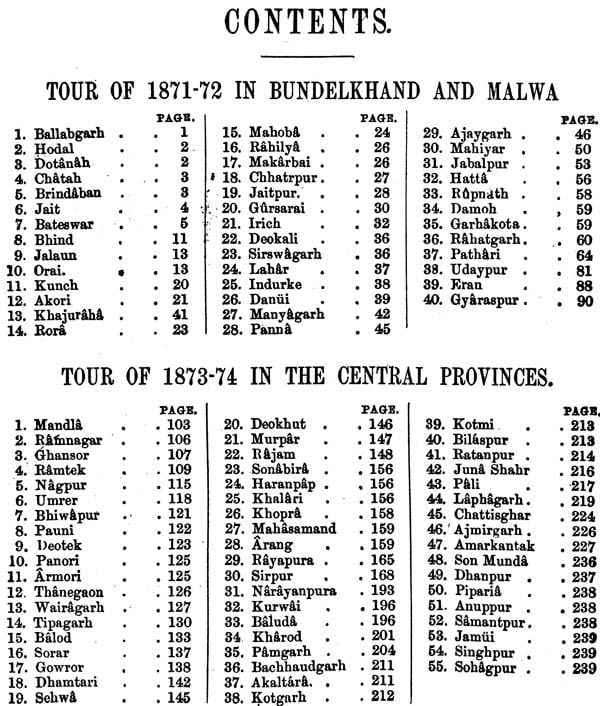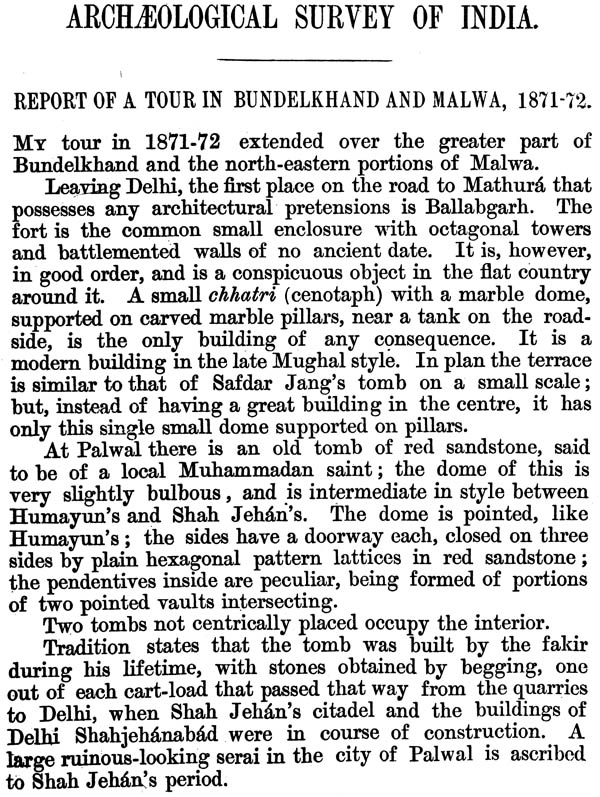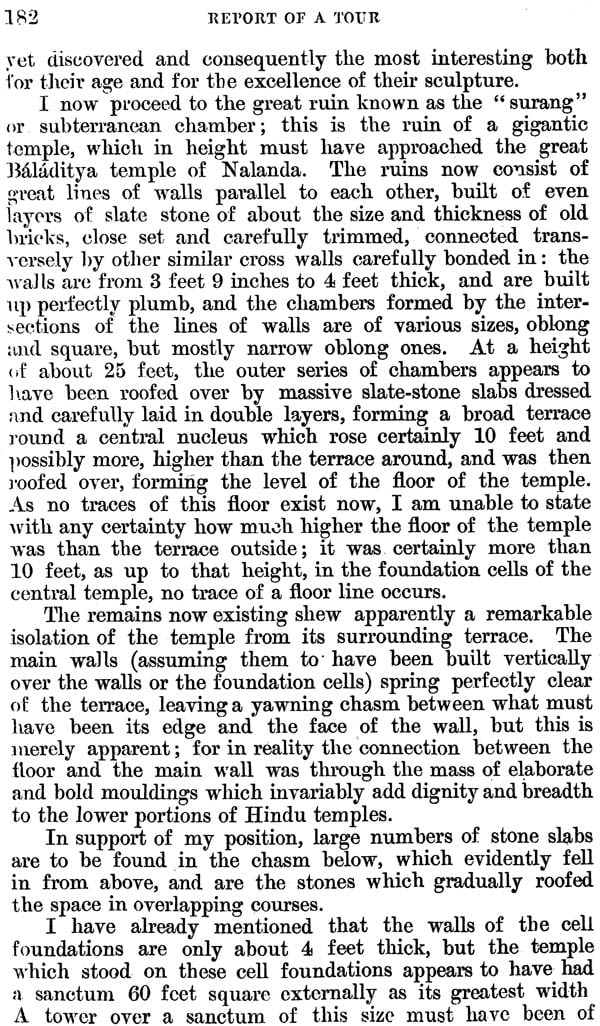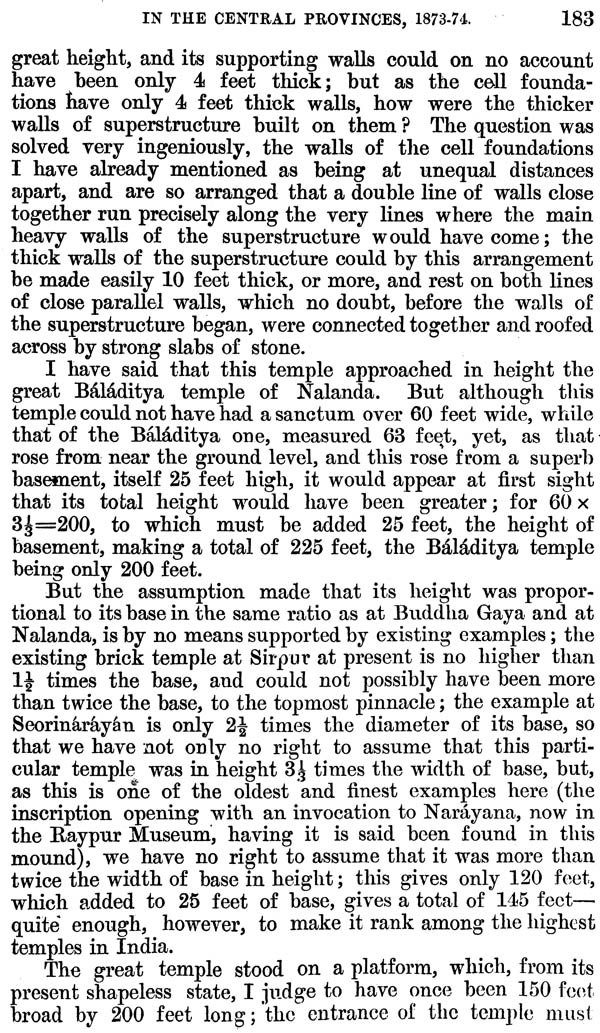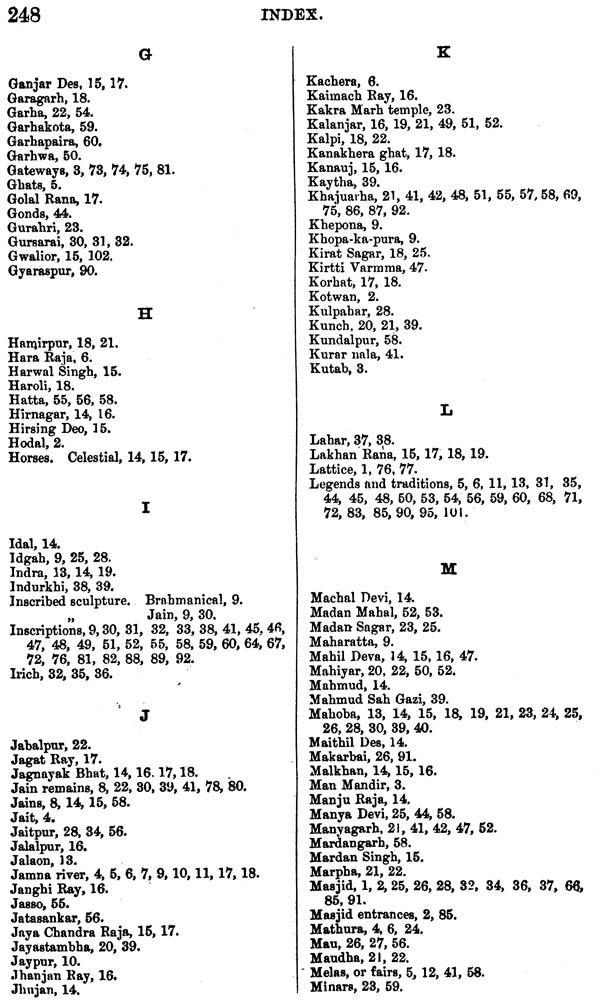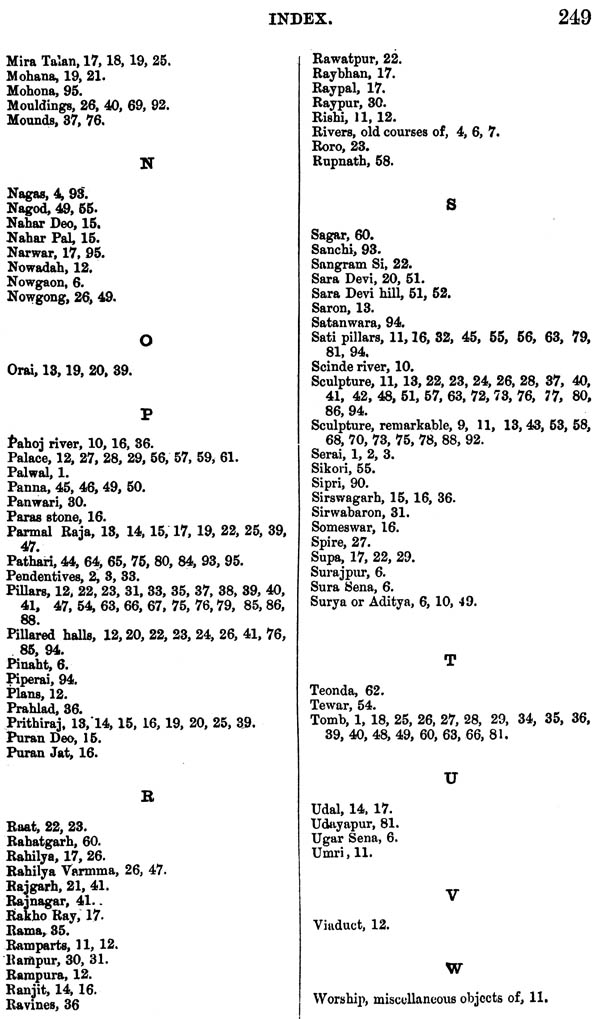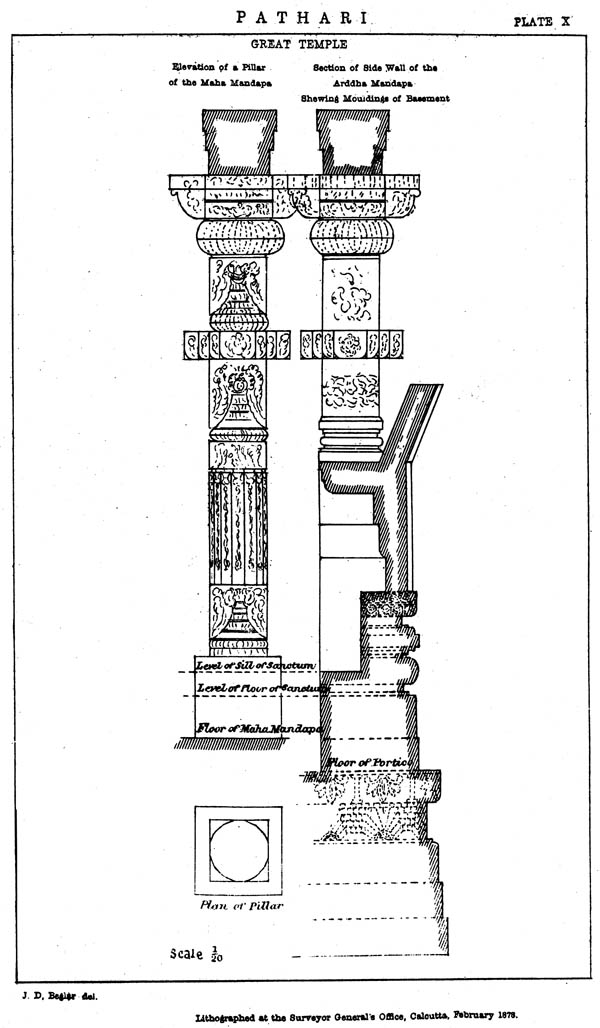
Archaeological Survey of India Report of a Tour in Bundelkhand and Malwa and in the Central Provinces (Volume 7)
Book Specification
| Item Code: | NAW452 |
| Author: | J. D. Beglar and A. Cunningham |
| Publisher: | ARCHAEOLOGICAL SURVEY OF INDIA |
| Language: | English |
| Edition: | 2000 |
| Pages: | 284 (22 b/w Illustrations) |
| Cover: | HARDCOVER |
| Other Details | 10.00 X 7.00 inch |
| Weight | 780 gm |
Book Description
The two tours described in the present volume cover the greater part of Bundelkhand, a part of Malwa, and the eastern half of the Central Provinces. One of the main objects in Bundelkhand was to obtain photographs of the magnificent temples of Khajuraha. This was successfully accomplished ; and we can now examine leisurely the details of these richly-decorated specimens of Hindu architecture, which form by far the largest and finest group of temples in Northern India. Photographs were also made of the richly- carved temples at Pathari and Udaypur. At the latter place Mr. Beglar discovered that the ground plan of the temple was not formed on a square after the usual Hindu mode, but on a circle, not one of the salient points being a right angle. I have since tested Mr. Beglar’s plan, and I can vouch for the strict accuracy of his statement.
In the Central Provinces, Mr. Beglar took the eastern half of the country, whilst I took the western half, the line of division being the main road from north to south, running from Jabalpur vid Seoni and Nagpur to the Wen Ganga, east of Chanda. During this tour he visited many places that are now little known, but which were once large towns possessing rich temples. Some of these are still standing, but the greater number are in ruins. From them he collected many ancient inscriptions, ranging from 600 or 700 A. D. down to A. D. 1300 and 1400. Several of these inscriptions are of considerable interest, as they show the widely extended power of the Haihayas of Chedi. Two of them are actually dated in the " Chedi Samvatsara," an era hitherto unknown. In two other inscriptions the era is called the " Kalachurt Samvat," which is the same thing, as the princes of Chedi were of the Kalachuri branch of the Haihaya tribe. I have examined some eight inscriptions dated in this era, which also mention the week day, from which I have calculated that the era began in A. D. 249, the year 250 A. D. being the year 1 of the Chedi Samvat.
None of these inscriptions have yet been translated; but I have made a very close examination of all the older ones, and I am able to say that they will throw much light on the history of this part of India from the beginning of the Christian era down to the Muhammadan invasion. One of Mr. Beglar’s discoveries was the rock-cut seal of the powerful King Sasangka, who destroyed the holy Bodhi tree at Bodh Gaya shortly before A. D. 600. The seal is cut in the rock of the fort of Rohtaés on the Son river. That great fort must therefore have belonged to him. In another place Mr. Beglar heard of a powerful Raja of former days who was named Sao-Sangk, or "one hundred shells," because he was always preceded by one hundred shell-blowers. This name can only be a corruption of Sasdngka.
In one of the inscriptions from Sirpur I find that the place is called Sivapur and Sivadurg after Siva Raja. In another inscription I find mention of Choda-Ganga, who is probably the Chor-Ganga of the Orissa chronicles. Other inscriptions mention various princes with the title of Gupta, as Harsha Gupta and Siva Gupta. They are probably connected with the Siva Gupta and Bhava Gupta of the copper-plate inscriptions preserved in the temple of Jaganndth, as both these kings claim to have been sovereigns of Maha Kosala, the very country in which Mr. Beglar’s inscriptions were discovered. I am now having these inscriptions reduced and transcribed preparatory to publication.
Mr. Beglar also made a very rich collection of photographs of the curious old temples in these little known places. Several of these are of considerable antiquity, and when their inscriptions are translated, we shall have acquired a valuable store of additional data for the history of Indian architecture.
**Contents and Sample Pages**
